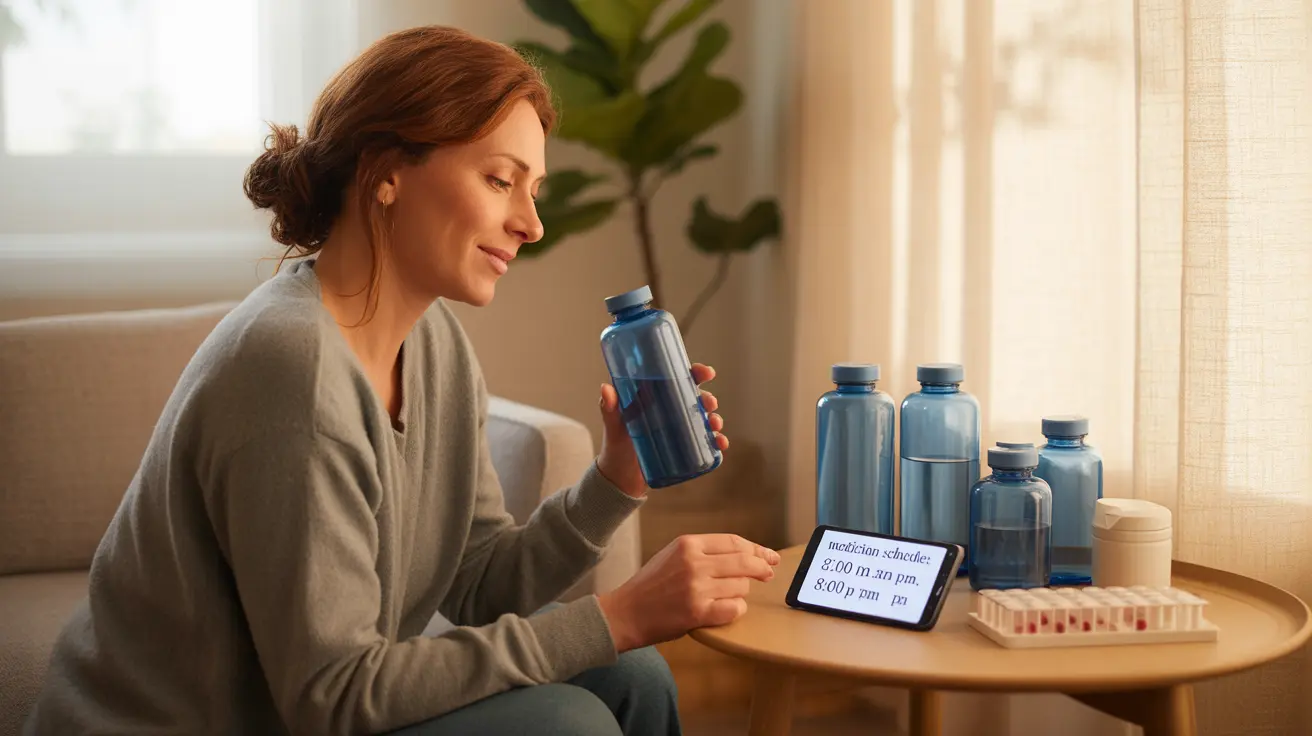Living with diabetes insipidus requires careful attention to daily self-care routines to maintain health and well-being. This rare condition, which affects the body's ability to regulate water balance, can be effectively managed with proper knowledge and consistent care practices.
Understanding how to implement appropriate self-care strategies is crucial for preventing complications and maintaining quality of life. This guide will walk you through essential management techniques, medication protocols, and lifestyle adjustments to help you thrive while living with diabetes insipidus.
Understanding Hydration Management
The cornerstone of diabetes insipidus self-care is maintaining proper hydration levels. Unlike diabetes mellitus, which affects blood sugar, diabetes insipidus primarily impacts water regulation in your body. To prevent dehydration, it's essential to:
- Monitor daily fluid intake carefully
- Keep water readily available at all times
- Track urine output when possible
- Adjust fluid intake based on activity levels and climate
For most people with diabetes insipidus, fluid intake needs to be significantly higher than average, often ranging from 3 to 20 liters per day, depending on the severity of the condition.
Medication Management Strategies
Proper medication adherence is crucial for managing diabetes insipidus effectively. The most commonly prescribed medication is desmopressin (DDAVP), which helps control urine output and maintain water balance. Understanding your medication schedule and proper administration techniques is essential for optimal results.
Tips for Medication Success
To maximize the effectiveness of your diabetes insipidus medications:
- Take medications at the same time each day
- Store medications according to proper temperature guidelines
- Keep track of refills to avoid running out
- Monitor how your body responds to medication timing
- Communicate any concerns with your healthcare provider
Dietary Considerations
While there's no specific diet for diabetes insipidus, certain dietary modifications can help manage symptoms more effectively. Focus on:
- Balanced electrolyte intake
- Moderate sodium consumption
- Regular meal timing
- Avoiding excessive caffeine
- Including water-rich foods in your diet
Monitoring and Warning Signs
Being aware of your body's signals is crucial for proper diabetes insipidus self-care. Watch for these warning signs that may indicate your condition needs attention:
- Sudden increase in thirst or urination
- Unexplained fatigue or weakness
- Headaches or dizziness
- Changes in mental clarity
- Muscle cramps or weakness
Lifestyle Adaptations
Making practical lifestyle adjustments can significantly improve your quality of life with diabetes insipidus. Consider implementing these strategies:
- Plan activities around bathroom access
- Carry water and medication at all times
- Use a health tracking app or journal
- Inform close friends and family about your condition
- Wear medical identification jewelry
Frequently Asked Questions
How do I manage daily self-care to prevent dehydration with diabetes insipidus? Monitor your fluid intake closely, carry water with you at all times, and maintain a consistent medication schedule. Develop a routine for tracking your hydration status and adjust fluid intake based on activity levels and weather conditions.
What medications are commonly prescribed for diabetes insipidus and how should they be taken? Desmopressin (DDAVP) is the most common medication, available in nasal spray, tablet, or injection form. Take it as prescribed, typically twice daily, and maintain consistent timing for optimal effectiveness.
Are there specific dietary changes that can help reduce symptoms of diabetes insipidus? While no specific diet is required, maintaining balanced electrolyte levels, moderating sodium intake, and including water-rich foods can help manage symptoms. Avoid excessive caffeine and alcohol, which can affect hydration status.
How can I recognize when diabetes insipidus symptoms are worsening and require medical attention? Watch for increased thirst and urination beyond your usual patterns, severe headaches, unusual fatigue, confusion, or rapid weight loss. These symptoms may indicate your condition needs medical evaluation.
What lifestyle adjustments can improve quality of life for someone living with diabetes insipidus? Plan activities around bathroom access, always carry water and medication, use tracking tools to monitor symptoms, and maintain open communication with healthcare providers. Consider joining support groups for additional guidance and emotional support.




